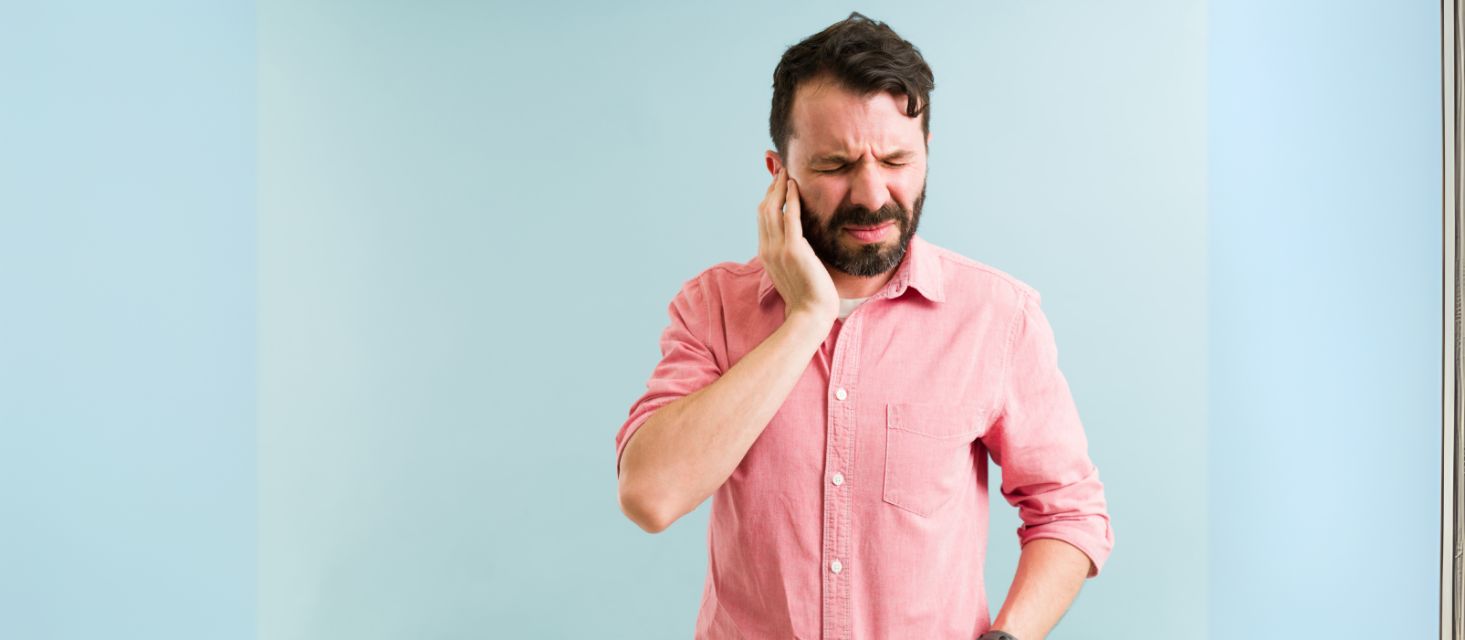Hearing a crackling noise in your ear can be disorienting, irritating, and sometimes worrying. Whether it's a brief popping sound or a continuous bubbling sensation, understanding the underlying causes is key to knowing when to seek medical advice. Crackling noises in the ear can occur sporadically or persistently, and while they are often harmless, there are various potential factors behind them. This page examines the causes of crackling sounds, treatment options, and when you should consult a doctor to maintain optimal ear health.
What Causes Crackling Noises in the Ear?
There are various reasons for crackling noises in the ear. Some are benign and self-resolving, while others may indicate an underlying issue that needs attention. Here are the most common causes:
1. Earwax Buildup (Cerumen Impaction)
One of the most frequent causes of crackling noises in the ear is earwax buildup. Earwax is a natural substance produced by the glands in the ear canal to protect the ear from dirt, dust, and bacteria. However, when earwax accumulates and hardens, it can lead to impacted earwax, which can trap air or moisture, creating a popping, crackling, or muffled sound in the ear. Earwax buildup may also cause other symptoms, such as discomfort, a feeling of fullness in the ear, or partial hearing loss.
Treatment: To resolve earwax buildup, it’s important to remove the wax safely. Avoid using cotton swabs, which can push the wax deeper into the ear canal. A safer approach is to use ear drops designed to soften the earwax or consult with a healthcare professional for ear irrigation or the use of a specialised tool like the Eddy by Auracle. This next-generation earwax removal device was designed in collaboration with audiologists and ENT specialists for effective and gentle ear cleaning.
2. Eustachian Tube Dysfunction (ETD)
The eustachian tube is a small passage that connects the middle ear to the upper throat and helps equalise pressure in the middle ear. When the eustachian tubes become blocked or fail to open properly, they can cause discomfort and a crackling noise in the ear, which may be accompanied by a feeling of fullness or muffled hearing. This condition, known as Eustachian Tube Dysfunction (ETD), can occur due to several factors, including:
-
Sinus infections: Inflammation or infection of the sinuses can cause swelling of the eustachian tube, leading to crackling noises.
-
Allergies: Allergic reactions can lead to excess mucus production, which can block the eustachian tube.
-
Changes in altitude: Traveling by plane or driving through mountainous regions can cause rapid changes in air pressure, putting stress on the eustachian tube.
Treatment: ETD often resolves on its own, but if the symptoms persist, you can try methods to relieve pressure in the middle ear. These include yawning, swallowing, chewing gum, or using a saline nasal spray to reduce congestion. Decongestants or antihistamines may also be recommended by a healthcare provider to alleviate the symptoms.
3. Temporomandibular Joint (TMJ) Disorders
The temporomandibular joint (TMJ) is the joint that connects your jaw to your skull, located near the ear canal. Issues with the TMJ, such as TMJ disorders, can lead to unusual sounds in the ear, including crackling or popping. TMJ problems often occur due to teeth grinding, jaw clenching, or misalignment of the jaw. If you experience jaw pain, difficulty chewing, or clicking sounds when moving your jaw, this could be the cause of the crackling noise in your ear.
Treatment: TMJ disorders may be treated with physical therapy, the use of a nightguard, or, in more severe cases, TMJ surgery. Relaxation techniques and muscle relaxants may also be prescribed to help relieve jaw muscle tension.
4. Ear Infections
An ear infection, particularly in the middle ear (known as acute otitis media), can cause fluid buildup behind the eardrum, which may result in crackling or popping sounds. Infections can occur due to bacteria, viruses, or other pathogens, often following a cold or upper respiratory infection. Symptoms of an ear infection may include ear pain, fever, hearing loss, and drainage from the ear.
Treatment: Depending on the cause of the infection, antibiotics or antiviral medications may be prescribed. Over-the-counter pain relievers, warm compresses, and ear drops can help manage the discomfort associated with an ear infection. If symptoms persist or worsen, it's important to consult a doctor for further evaluation. You can learn more about how to know if you have an ear infection.
5. Acoustic Trauma or Damage
Acoustic trauma occurs when the delicate structures of the inner ear are damaged by exposure to loud noises, such as at a concert, factory, or while using loud machinery. This can lead to hearing loss and various auditory symptoms, including crackling, ringing (tinnitus), or buzzing. Prolonged exposure to loud sounds can lead to permanent damage to the ear, so it is essential to take precautions to protect your hearing in noisy environments.
Treatment: In cases of acoustic trauma, the best course of action is to avoid further exposure to loud sounds and to use ear protection, such as earplugs or noise-canceling headphones. For those experiencing tinnitus symptoms, medical interventions like sound therapy or cognitive behavioral therapy may be helpful. Find out more on why your ears are popping.
6. Air Pressure Changes
Experiencing crackling noises in the ear during altitude changes, such as when flying or diving, is a natural response to changes in air pressure. As the eustachian tubes work to equalise pressure between the middle ear and the outside environment, you may hear popping or crackling sounds. This is generally harmless and resolves once the pressure equalises.
Treatment: Swallowing, yawning, or chewing gum can help the eustachian tube open and relieve pressure. If the problem persists, you may use a nasal spray or decongestant to help clear any blockage in the eustachian tubes.
How to Treat Crackling Noises in the Ear
For most cases, crackling noises in the ear are temporary and can be managed with simple home remedies or lifestyle changes. However, if the symptoms persist, you may need medical intervention. Here's a breakdown of treatment options:
1. Home Remedies
For minor cases of crackling noises, you can try several techniques at home:
-
Yawning or swallowing: These actions help open the eustachian tubes and equalise pressure.
-
Steam inhalation: Breathing in steam can help clear the sinuses and reduce pressure in the middle ear.
-
Eddy tool: For earwax-related issues, the Eddy by Auracle is a safe, professional-grade earwax removal tool that can help eliminate earwax buildup.
2. Medical Treatments
If home remedies are not effective, a healthcare provider may recommend:
-
Ear irrigation: A doctor or audiologist can flush out stubborn earwax using a gentle ear irrigation system. Learn more about ear irrigation.
-
Medications: Decongestants, antihistamines, or antibiotics may be prescribed for conditions like sinus infections, allergies, or ear infections.
-
Physical therapy: In cases where TMJ disorders are the cause of ear noises, physical therapy may be recommended to help relieve joint pain and muscle spasms.
3. Lifestyle Adjustments
Certain lifestyle changes can also help prevent or alleviate ear-related symptoms:
-
Avoid inserting objects like cotton swabs into your ears.
-
Protect your ears from loud noises by using earplugs or noise-canceling headphones.
-
Stay hydrated to keep the mucous membranes in the ears healthy and functioning properly.
When Should You See a Doctor?
Although occasional crackling noises in the ear are usually harmless, you should seek medical advice if:
-
The crackling noises persist or worsen over time.
-
You experience severe ear pain, fever, or discharge from the ear.
-
You notice hearing loss, dizziness, or a feeling of imbalance.
A doctor may perform tests such as a physical exam, hearing tests, or imaging studies to determine the cause of the crackling noise and recommend appropriate treatment.
Waxed and Enlightened: Closing Notes
Crackling noises in the ear can have a variety of causes, including earwax buildup, Eustachian tube dysfunction, TMJ disorders, ear infections, and more. While many of these issues resolve with simple home remedies, it’s important to seek medical advice if symptoms persist or worsen.
For safe and effective ear care, consider using advanced tools like the Eddy by Auracle for earwax removal, and consult a healthcare professional for an accurate diagnosis and treatment. Taking steps to protect your ear health and avoiding environmental factors like loud noises can go a long way in preventing these annoying sounds from recurring.
FAQs About Crackling Noises in the Ear
1. How do I get rid of crackling noise in my ear?
To alleviate crackling noises, try yawning, swallowing, or chewing gum. If earwax buildup is the cause, use a safe cleaning device like the Eddy to remove the wax. If symptoms persist, seek medical advice.
2. What does it mean when you hear crackling in your ear?
Crackling noises can be caused by earwax buildup, Eustachian tube dysfunction, fluid in the ear, or an ear infection. If accompanied by pain, fever, or hearing loss, it’s important to consult a healthcare provider.
3. How do I get rid of a bubbling noise in my ear?
Bubbling noises often occur due to trapped fluid or earwax. You can try steam inhalation or ear irrigation to clear the blockage. If symptoms persist, seek medical attention.
4. Why do I hear a crunching noise in my ear when I swallow?
Crunching sounds during swallowing are usually due to Eustachian tube function. If the noise is persistent or bothersome, treatment for Eustachian tube dysfunction may be necessary.








Share:
Related Blogs
Who Does Ear Syringing?
Can Ear Irrigators Help with Hearing Loss?